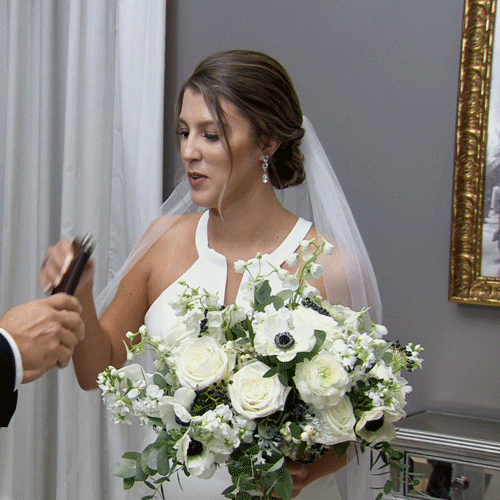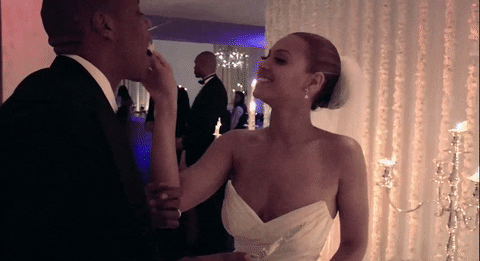This Latina Wedding Planner Answers Your Biggest Questions About Planning a Multicultural Wedding
It’s not easy to be the bride at the center of a big, fat Latinx wedding (or a groom, for that matter!). As both a Latino and an American, you have to juggle the influences of two cultures — and that responsibility can feel overwhelming.
“What makes a Latino wedding unique is nuestras tradiciones y cultura and our family dynamics,” Jaz, the Latina wedding planner and TikTok creator who is also the owner of event-planning business Occasions By Jaz, told mitú. “Planning a Latino wedding is hard because you have to find the perfect balance and the perfect way to incorporate your Latino culture and traditions, and the American culture that you grew up seeing in the movies.”

Of course, depending on what part of Latinidad you come from, customs and traditions vary, but Jaz reminds us that “our weddings are filled with rituals and traditions such as la pedida de mano, el lazo, las arras, el balie del dinero, la vibora to el recalentado (tornaboda).”
Because planning a multicultural wedding comes with so many challenges, we enlisted Jaz to help answer common questions that Latina brides have when it comes to planning the perfect big day.
Q: My family insists that I invite my entire extended family, including cousins I’ve never met and young kids. Would it be completely rude if I refuse?

A: It’s not rude to refuse to invite family members that you don’t see often or do not know. Yes, your mom might get upset or someone will not talk to you for a while, but planning a wedding is expensive and the more people you invite to your wedding, the more expensive it will get. So, if you can’t afford it or simply don’t want to invite extended family members or young kids, don’t! It’s okay to say no and set boundaries.
Q: My fiancé is not Latino. How do I incorporate traditional elements of my culture into the wedding without completely overwhelming/isolating his family?
A: First of all, you need to decide on the traditional elements you want to bring into the wedding. Will it be certain rituals during the ceremony? Or do you want to have a traditional dish during the reception? Once you have decided on that element, you want to make sure you explain why it is important to you so that your new family understands the meaning behind the ritual or custom. For example, if you want to incorporate the lazo ceremony, have the officiant explain the significance behind it and maybe your padrinos can be someone from your fiancé’s family.
Q: Should I have a seating chart? All the advice online tells me it’s a necessity, but none of the Latino weddings I’ve ever been to have had one.
A: It depends, seating charts are not for everyone or for every family. If you want one I say do it! Seating charts help you separate the tías that cannot stand each other — just kidding —, but it can ease the stress of finding a seat for the guests and keeps you organized. But it is not common in the community, so you might want to have ushers or someone to direct people to their seat. If you are not planning on having a seating chart, I do suggest reserving a few tables for immediate family and bridal party.

Q: I am religious, but my fiancé is not. My abuelita says that if we don’t have a religious ceremony, we won’t actually be married. And now I’m freaked out! Should I push for him to accept a religious ceremony even though he might be uncomfortable?
A: I am a true believer that you should do what feels right to you and your fiancé regardless of what your abuelita says (sorry, abuela). Your abuelita might want to have a traditional religious ceremony, but you can try to compromise by having a blessing instead, something that can make your fiancé comfortable.
Q: How the heck do I go about having a bilingual ceremony? I want everyone to understand what’s going on, but we have just as many English-speakers coming as Spanish-speakers. I’m afraid the ceremony will go on for too long!

A: The key to having a bilingual ceremony is having a bilingual officiant. You can opt for them to translate every part of the ceremony in English and in Spanish or do certain portions in English and in Spanish.
Editorial note: Jaz opted to omit her last name from the interview.





